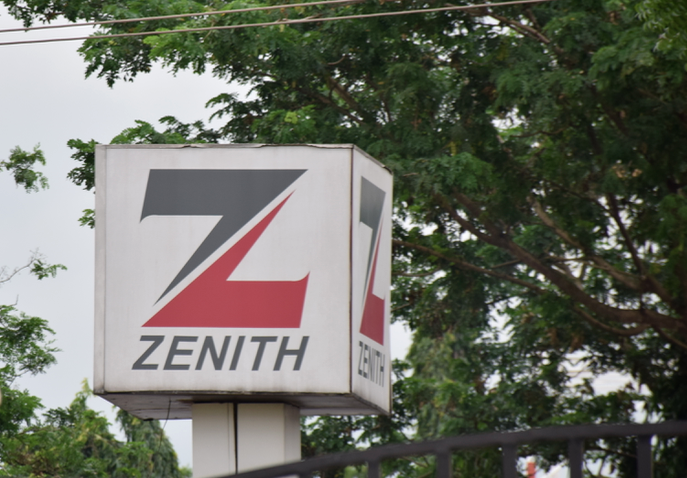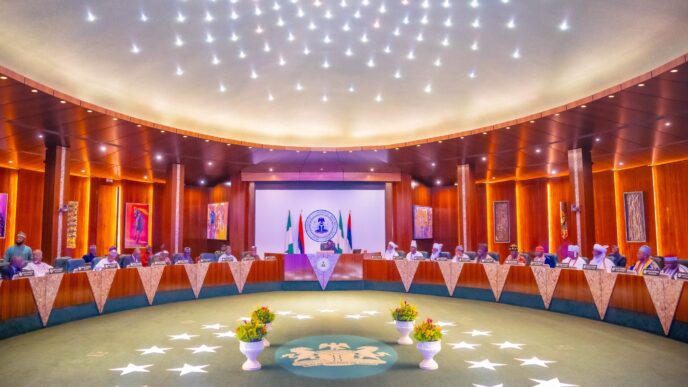Nigerian corporates and SMEs have decried the non-settlement of Foreign Exchange (FX) forwards by the Central Bank of Nigeria (CBN).
The transactions which occurred between 2022 and 2023 are yet to be settled on maturity.
Analysts and stakeholders have expressed fears that the delay could have grave implications for the economy.
Reports indicate that affected companies could lose about N2.4 trillion which will impact Company Income Tax (CIT) for the next two to three years and also threaten federal government’s income.
Advertisement
The development could also exact a huge toll on the fragile FX market which is being rebuilt by the apex bank as it would come under severe pressure, and potentially drive exchange rates to about N3,000/$.
In addition, these losses could also trigger bank losses as confirmation lines used may not be serviced by the SMEs and corporates as well as put over one million jobs at risk.
Analysts further expressed concerns that the unsettled forwards could potentially erode investor confidence in a struggling economy with all the attendant implications. They were unanimous that the apex bank needed to act quickly to resolve the issues.
Advertisement
Earlier in March, the CBN announced that all valid FX backlogs owed to various sectors of the economy had been settled, fulfilling a key pledge of the CBN Governor, Mr. Olayemi Cardoso, to process an inherited backlog of $7 billion in outstanding liabilities.
In a recent interview with Arise Television, Cardoso revealed that about $2.4 billion out of the acclaimed $7 billion outstanding foreign exchange liabilities of the federal government were not valid for settlement.
He said while the bank had settled verified FX requests which amounted to $2.3 billion at the time, the total outstanding FX obligations remained at $2.2 billion.
The central bank governor further indicated that part of the headline $7 billion outstanding FX claims were not valid, citing the outcome of a forensic audit by Deloitte Management Consultant which the apex bank commissioned.
Advertisement
He maintained that the CBN would not pay for FX requests that are not validly constituted, adding that the bank had written to authorised dealers to explain the disparities identified.
Furthermore, Cardoso said the bank had contracted the Economic and Financial Crimes Commission (EFCC) to investigate suspicious transactions to prosecute individuals and entities with fraudulent entries.
However, the affected companies had expressed worry that the outcome of the investigation was taking forever as most of them have used bank confirmed lines to open Letters of Credit (LCs), paid import duties, and received the goods, while suppliers were mostly settled by their banks’ correspondent banks.
“While CBN says EFCC is investigating, the corporates are bleeding and under intense pressure from their banks and their suppliers,” the stakeholders said.
Advertisement
They called on the central bank to settle the forwards and get EFCC to prosecute companies involved in any act of round-tripping or abuse in the utilisation of the liquidity.
They also warned that the continued delay in settling the outstanding liabilities of companies has far-reaching implications for the companies and the economy in general.
Advertisement
Director General, Nigerian Employers’ Consultative Association (NECA), Mr. Adewale-Smatt Oyerinde, explained that forward transaction is an agreement whereby a company credits the CBN through its bank for future supply of FX usually within 90 days.
He expressed dismay that data provided by JP Morgan & Co., had estimated unsettled liabilities at $6.8 billion in 2022, which certainly would be higher afterwards.
Advertisement
Oyerinde, said the development had already truncated the smooth running of production plans and capacity utilisation in industries, particularly that of SMEs that do not have the financial clout to explore other liquidity sources.
He further lamented that supply of raw-materials and production cycle had been broken due to the unsettled indebtedness by the central bank, which had ultimately led to low level of business activities, loss of revenues and low profit margins for corporate firms, including the SMEs.
Advertisement
He therefore urged the CBN to prioritise the settlement of outstanding forwards so that the companies involved could move forward and get on with their businesses.
He maintained that the involvement of EFCC in the matter was unnecessary.
Oyerinde said: “The CBN had informed the public that some of the FX Forward claims are not genuine and that the Economic Financial Crime Commission (EFCC) is investigating the issues.
“But the FX Forward is a transaction that involves the companies, their banks and the CBN with definite documentations and approvals as such. Therefore, due diligence by the CBN should be sufficient in determining the genuine cases.”
He said the CBN should engage “relevant banks on the claimed outstanding forwards to resolve unsettled cases rather than involving EFCC that is not part of the initial agreement”.
Add a comment








